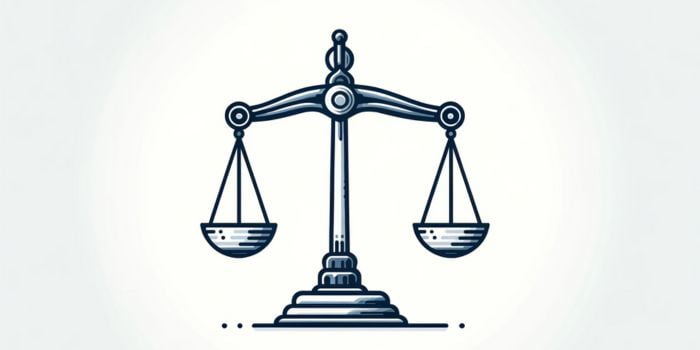
Prescribed debt may sound intricate, but it’s relatively simple when dissected. In South Africa, if you have outstanding debt and fail to repay it within a specified timeframe, that debt can become ‘prescribed.’ Essentially, this means that, after a certain period, typically three years, the law may shield you from having to settle that debt. Nevertheless, there are specific conditions and regulations associated with this concept, which we’ll explore in more detail as we proceed with this guide.
Key Takeaways
- Prescribed debt pertains to debts that become legally unrecoverable after a designated period, typically three years for most debts in South Africa.
- Both debtors and creditors have rights under the Prescription Act 68 of 1969.
- Although prescribed debt can affect your credit score, there are measures you can take to restore your credit health.
- Debt collection agencies operate within the same legal framework as other creditors.
The Basics of Prescribed Debt
Prescribed debt refers to the money you owe, which, after a certain period, you’re no longer legally obligated to pay back. This might sound like a free pass, but it’s not that simple. There are rules, conditions, and specific terms linked to this concept. Let’s break down some of the common terms you might come across:
- Debtor: That’s you if you owe money.
- Creditor: The person or company to whom you owe money.
- Prescription Period: The set time after which a debt becomes prescribed, typically three years in South Africa for most debts.
- Acknowledgment of Debt: Any action or communication where you admit you owe the money, like making a payment or even verbally admitting the debt.
Understanding these terms will make it easier to grasp the broader concept and know where you stand in the debt landscape.
How Debt Becomes Prescribed
For a debt to become prescribed in South Africa, a few conditions need to be met. First and foremost, the prescription period must pass without any interruption. For most debts, this period is three years. However, there are exceptions. For instance, a home loan’s prescription period is 30 years.
But here’s the catch: the clock can reset. If you, as the debtor, do anything to acknowledge the debt within the three-year period, the countdown starts all over again. This means if you make a payment, promise to pay, or even admit the debt, the three-year period restarts from that date.
Additionally, the creditor has the right to interrupt the prescription period by taking legal action. If they serve you with a summons within the three years, the debt won’t prescribe.
In a nutshell, for a debt to become prescribed:
- The prescription period (usually three years) must pass without interruption.
- The debtor shouldn’t acknowledge the debt in any way during this time.
- The creditor shouldn’t take legal action within the prescription period.
By understanding these basics, you’ll be better equipped to handle situations involving prescribed debt and make decisions that are beneficial for your financial well-being.

Legal Framework Surrounding Prescribed Debt
Laws and Regulations
In South Africa, when it comes to prescribed debt, there is a set of laws that govern its operation. The primary legislation in this context is the Prescription Act 68 of 1969. This act provides the framework for when and how a debt becomes prescribed. It’s not an arbitrary rule; it’s underpinned by legal provisions that both debtors and creditors must be aware of. The act essentially stipulates that after a certain period, a debt will be considered prescribed, and the debtor will no longer be legally obligated to repay it. However, as discussed earlier, there are conditions such as acknowledging the debt and taking legal actions that can disrupt this prescription period. The Prescription Act is the foundation that offers clarity on these conditions and ensures equitable treatment for both parties.
Rights of the Debtor and Creditor
As a debtor, the law is not against you; it’s there to ensure fairness. Once a debt becomes prescribed, you have the legal right to raise prescription as a defense if a creditor attempts to claim the money. This means that if they take you to court after the prescription period, you can use the fact that the debt is prescribed as your defense. However, it’s important to remember that if you’ve acknowledged the debt in any way during the prescription period, this defense won’t be valid.
On the other hand, creditors also possess rights. They have the full right to claim their money within the prescription period. If they suspect that the debt is about to become prescribed, they can take legal action, such as serving a summons, to interrupt the prescription. This action ensures that they still have a valid claim to their money.
The Impact of Prescribed Debt on Credit Score
How Prescribed Debt Affects Your Credit Rating
Your credit score is like a financial report card, and just like in school, you want to aim for good grades. Every time you borrow money and pay it back, it leaves a mark on this score. Now, you might wonder, “What happens when I have a prescribed debt?” Well, prescribed debt can leave a dent in your credit score. When you don’t pay back a debt, and it becomes prescribed, it doesn’t just vanish from your credit record immediately. It stays there, and potential lenders can see it. This record can make lenders hesitant to lend you money in the future because it shows you’ve had issues repaying in the past. Even if the law says you don’t need to pay back a prescribed debt, the history remains on your credit profile for a while, typically around five years.
Ways to Improve Credit Score Post-Prescribed Debt
Having a prescribed debt on your record isn’t the end of the world. Yes, it affects your credit score, but there are ways to bounce back. Here’s a simple approach to start rebuilding your credit:
- Consistent Payments: Start by ensuring you pay your current debts on time. Consistency is key. Over time, this positive behaviour will reflect on your credit score.
- Limit New Debt: Avoid taking on unnecessary new debts. Focus on managing and paying off what you currently owe.
- Check Your Credit Report: Regularly check your credit report for any errors or discrepancies. Sometimes, errors can drag your score down. If you spot any, report them immediately.
- Seek Financial Advice: If you’re unsure about how to manage your debts or improve your credit score, consider seeking advice from financial experts. They can provide guidance tailored to your situation.
Remember, everyone can face financial hiccups. What matters is how you bounce back. By being proactive and taking steps to manage your finances better, you can improve your credit score over time, even if you’ve had prescribed debts in the past.
Navigating Prescribed Debt: Practical Steps
Identifying if Your Debt is Prescribed
Determining whether your debt is prescribed can feel like navigating a maze, but armed with the right knowledge, it becomes a straightforward journey. The first thing to consider is the time that has elapsed since your last activity on the debt. If it has been three years or more since your last payment, acknowledgment of the debt, or receipt of legal documents related to it, there’s a good chance it might be prescribed. However, remember that certain debts, such as home loans, have a longer prescription period.
To gain a clear understanding, you can request a statement of your account from the creditor. This statement will indicate the date of the last activity on the account. If you remain uncertain, consider seeking guidance from a legal expert or financial advisor. They can assist you in determining the status of your debt with greater certainty.
What to Do if Contacted About a Prescribed Debt
Being contacted regarding an old debt can be unsettling. If you believe the debt is prescribed, remain calm and adopt a systematic approach. First and foremost, refrain from hastily making any payments or acknowledging the debt, as doing so can reset the prescription clock. Instead, request detailed information about the debt, including the date of the last payment or acknowledgment from the creditor or collection agency.
If the information confirms that the debt is indeed prescribed, communicate this to the creditor or collection agency. You can assert that you believe the debt is prescribed and that you will not be making any payments toward it. If they persist in their pursuit, contemplate seeking legal advice. Remember, once a debt is prescribed, you are protected by the law, and you are not legally obliged to repay it. However, it is essential to be confident in your knowledge and resolute in asserting your rights.
Navigating prescribed debt may seem challenging, but armed with the right information and approach, you can handle any situation that comes your way. Always prioritize understanding your financial position and seek expert guidance when in doubt.
» Find out more: Debt Review – Your pathway to financial freedom?

Preventing Debt from Becoming Prescribed
Best Practices for Debt Management
Effectively managing debt is akin to tending to a garden. With regular attention and care, you can ensure it remains healthy and doesn’t spiral out of control. One of the initial steps in effective debt management is to keep a record of all your debts. Create a list, document the amounts, interest rates, and due dates. This straightforward action provides you with a clear overview of your financial position.
Always strive to make your debt payments on time. Set up reminders or automate payments to prevent missing any due dates. If you encounter difficulties in making a payment, it’s advisable to communicate with your creditor. Often, they may be willing to negotiate a payment plan or provide some flexibility.
Budgeting is another potent tool at your disposal. By allocating a specific amount for debt repayment each month, you ensure consistent progress in reducing what you owe. It’s also prudent to avoid incurring unnecessary new debts, especially if you’re already managing multiple repayments.
Seeking Professional Help
There’s no shame in seeking assistance, particularly when it pertains to financial management. If you feel overwhelmed by your debts or are uncertain about how to handle them, contemplate reaching out to a financial advisor or counselor. These professionals can offer personalized guidance, help you establish a realistic budget, and even negotiate with creditors on your behalf.
Several organizations in South Africa provide free or affordable financial counseling services. They can guide you toward financial stability and ensure that you make well-informed decisions. Remember, the sooner you seek help, the more options you’ll have available. It’s always wiser to confront financial challenges directly rather than allowing them to escalate.
About Arcadia Finance
Obtain your loan smoothly with Arcadia Finance. Applying won’t cost you anything, and you have the option to select from a pool of 19 respected lenders. Each lender abides by the regulations outlined by the South African National Credit Regulator.
The Truth About Debt Collection and Prescribed Debt
In the realm of finances, myths and misconceptions can obscure judgment and lead to unnecessary stress. One area rife with misunderstandings is the relationship between debt collection agencies and prescribed debt. Let’s dispel these misconceptions.
Firstly, many believe that once a debt is handed over to a debt collection agency, it can never become prescribed. This is not accurate. The rules of prescription apply regardless of who is attempting to collect the debt. Whether it’s the original creditor or a third-party agency, the clock on the prescription period continues to run.
Another common misconception is that debt collection agencies possess special powers or methods to recover old debts. In reality, they operate within the same legal framework as everyone else. They cannot compel you to pay a prescribed debt, and they cannot reset the prescription clock without your acknowledgment of the debt.
Lastly, some think that if a debt collection agency contacts them about a debt, it automatically means the debt isn’t prescribed. This is not always the case. Sometimes, agencies may make contact in the hope that you’re unaware of the prescription status. It’s always wise to verify the status of the debt before making any decisions.
Conclusion
Navigating the financial landscape of prescribed debt in South Africa may appear daunting, but armed with the right knowledge, it becomes an empowering journey. By comprehending the nuances of prescribed debt, from its legal framework to its practical consequences, individuals can make well-informed choices that protect their financial well-being. Whether you are someone striving to manage existing debts or seeking to educate yourself for the future, remember that knowledge is your most potent ally. In the continually changing realm of financial responsibilities, staying informed and proactive is the cornerstone of maintaining a robust financial future. With the insights provided in this guide, you are now better prepared to confront any challenges that arise and transform them into opportunities for growth and stability.
Frequently Asked Questions
The primary difference lies in the legal obligation to pay. Regular debt is an active financial obligation you are legally bound to settle. If you don’t, the creditor can take various actions, including legal ones, to recover their money. Prescribed debt, on the other hand, is a debt that has aged past a certain period (typically three years for most debts in South Africa) without acknowledgment or action from the debtor or creditor. Once a debt becomes prescribed, you’re no longer legally required to pay it, even if the creditor demands payment.
Yes, a creditor or a debt collection agency can still contact you about a prescribed debt. However, they cannot legally compel you to pay it. If you believe a debt has prescribed, it’s wise to inform the creditor of its status. Always ensure you’re certain about the prescription status before making any decisions or acknowledgments.
For most debts in South Africa, the prescription period is three years. This means if there’s no acknowledgment or action on the debt for three years, it can become prescribed. However, there are exceptions. Some debts, like home loans, have a longer prescription period of 30 years.
While settling any debt can reflect positively on your credit profile, it’s worth noting that a prescribed debt is no longer a legal obligation. If you choose to settle a prescribed debt, it might show good faith on your part, but it won’t necessarily have a significant impact on improving your credit score. Remember, the record of the debt itself can remain on your credit profile for a period, typically around five years, even if it’s prescribed.
Technically, a creditor can take you to court for any debt. However, if the debt is prescribed and you raise prescription as a defense, the court should recognize that you’re no longer legally obligated to pay. It’s crucial to be aware of the prescription status and to assert it as a defense if you’re taken to court for such a debt.
Fast, uncomplicated, and trustworthy loan comparisons
At Arcadia Finance, you can compare loan offers from multiple lenders with no obligation and free of charge. Get a clear overview of your options and choose the best deal for you.
Fill out our form today to easily compare interest rates from 19 banks and find the right loan for you.


